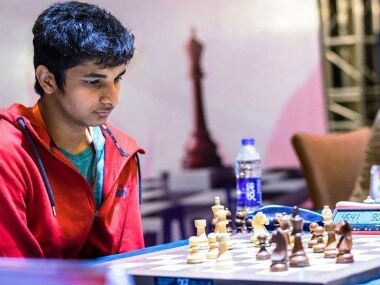Nurturing Chess Excellence: A Pathway to Becoming a Great Chess Parent!

Parenting is a remarkable journey filled with challenges and rewards. When your child shows a keen interest in chess, a game that fosters critical thinking, strategic planning, and mental discipline, you have a unique opportunity to guide them toward excellence. Being a great parent to a chess player requires more than just providing support; it demands patience, understanding, and active involvement in their chess development. In this article, we will explore several essential strategies that can help you become a pillar of support for your aspiring chess prodigy.
- Encouragement and Emotional Support: Chess is a mentally demanding game, and children may face moments of frustration, self-doubt, or disappointment. As a parent, it's crucial to create a nurturing environment where your child feels encouraged to explore their passion. Celebrate their achievements, no matter how small, and provide a shoulder to lean on during setbacks. By offering unwavering emotional support, you build their confidence and resilience, enabling them to navigate the challenges of competitive chess with a positive mindset.
- Engage in Active Learning: To effectively support your chess-playing child, it's essential to understand the game yourself. Engage in active learning by familiarizing yourself with chess principles, strategies, and tactics. This knowledge will enable you to follow their progress more closely, engage in meaningful conversations about chess, and even participate in friendly games with them. By demonstrating a genuine interest in their passion, you strengthen the parent-child bond while also enhancing their chess skills through shared learning experiences.
- Create a Structured Practice Routine: Chess mastery requires consistent practice and structured training. Work together with your child to establish a practice routine that balances their chess commitments with other aspects of their life. Help them set goals, break them down into manageable tasks, and ensure they allocate dedicated time for practice, studying chess literature, and analyzing games. By instilling discipline and a strong work ethic, you empower them to progress steadily towards their chess aspirations.
- Seek Professional Guidance: While you can provide a supportive foundation, it is essential to recognize the value of professional guidance. Consider enrolling your child in a reputable chess academy or hiring a qualified chess coach who can provide expert training and mentorship. A skilled coach will assess their strengths and weaknesses, design personalized training plans, and expose them to a variety of chess resources. Collaborate with the coach to ensure open lines of communication, enabling you to stay informed about your child's progress and address any concerns effectively.
- Balance Chess with Other Interests: While chess may become a significant part of your child's life, it is crucial to encourage a well-rounded development. Support their involvement in other activities and interests, whether they are sports, arts, or academics. This balance fosters a broader perspective, aids in the development of critical skills like time management, and reduces the risk of burnout. Emphasize the importance of maintaining a healthy lifestyle, including regular exercise, sufficient sleep, and a balanced diet.
- Cultivate Sportsmanship and Ethical Values: Chess is not just a game; it is a microcosm of life itself. Teach your child the importance of sportsmanship, fair play, and ethical conduct in chess, emphasizing the values of integrity and respect for opponents. Encourage them to engage in chess tournaments, where they can learn valuable lessons from both victories and defeats. Help them understand that success is not solely determined by winning but also by personal growth, self-improvement, and the relationships they forge with fellow chess enthusiasts.
Being a great parent to a chess player goes beyond simply fostering their chess skills; it involves providing unwavering support, guidance, and a nurturing environment.
Here are a few examples of great chess parents who have played a significant role in nurturing their children's chess careers:
- Henrik Carlsen (Father of Magnus Carlsen): Henrik Carlsen is the father of Magnus Carlsen, Former World Chess Champion. Henrik introduced Magnus to chess at a young age and supported his passion by providing guidance and encouragement. He played a crucial role in Magnus' early development, ensuring he had access to quality training and competition opportunities. Henrik's dedication and belief in his son's abilities have been instrumental in Magnus' rise to becoming one of the greatest chess players in history.
- Aruna Anand (Wife of Viswanathan Anand): Aruna Anand is the wife of Viswanathan Anand, a former World Chess Champion. She has been a pillar of support throughout his chess career. Aruna has been actively involved in managing Viswanathan's professional commitments, including organizing his tournament schedules and coordinating with trainers and sponsors. Her unwavering support and understanding of the demands of professional chess have allowed Viswanathan to focus on his game and achieve remarkable success.
- Pavel and Elena Morozevich (Parents of Alexander Morozevich): Pavel and Elena Morozevich are the parents of Alexander Morozevich, a renowned Russian grandmaster. They recognized Alexander's talent for chess from a young age and provided him with a nurturing environment to develop his skills. The Morozevich family created a stimulating atmosphere where chess was both a passion and a way of life. Pavel and Elena's support and belief in their son's abilities contributed significantly to his successful chess career.
- Santosh Gujrathi and Nikita Santosh Gujrathi. (Parents of Vidit Gujrathi): They are the parents of Vidit Gujrathi, a prominent Indian grandmaster. They recognized Vidit's talent early on and supported his chess aspirations. The Kulkarnis ensured Vidit had access to quality chess training and traveled with him to various tournaments worldwide. They provided emotional support during challenging times and celebrated his achievements, instilling confidence and determination in their son.
These examples illustrate how parental support, guidance, and belief in a child's abilities can be instrumental in their chess development. Each of these great chess parents created an environment that fostered their child's passion, provided opportunities for growth, and offered unwavering support throughout their chess journeys.
Some useful links for further reading




